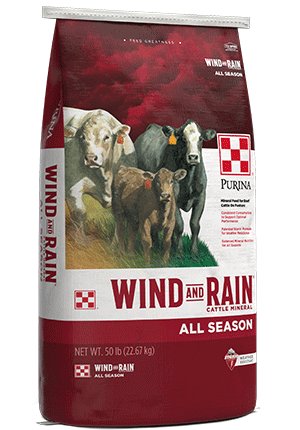
Why You Shouldn’t Skip Cattle Deworming
Management : Cow & Calf
Management : Weaned Calf
Management : Replacement
Management : Grower & Finisher
Deworming cattle can be costly.
Horn flies can also affect cattle performance.
Does your nutrition program stack up? Find out with a Proof Pays feeding trial.
1 Bagley, C., M. C. Healey, and D. Hansen. 1998. Beef Cattle Handbook: Internal parasites in cattle. <http://www.iowabeefcenter.org/Beef Cattle Handbook/Internal_Parasites.pdf>. Accessed February 18, 2016.
What happens if I skip cattle deworming?
Internal parasites in cattle can cause huge economic losses on an operation. In fact, it was estimated that internal parasites cost the U.S. cattle industry approximately $3 billion annually.1 When an internal infection occurs and visible signs go undetected, it can negatively impact cattle efficiency and performance. Worst of all, you may not even realize your cattle are being affected.So, what can happen if internal parasites in cattle are not controlled?
- Sacrifice feed efficiency. The major internal parasites that flourish in cattle reside in the digestive tract of infected animals, specifically in the abomasum and small and large intestines. The stomach and intestinal lining are disrupted as a result. When these linings are disrupted, the digestive and absorption processes decrease allowing internal parasites to use nutrients meant for the animal. This can lead to reduced nutrient utilization and feed efficiency.
- Reduce potential for gain. A decrease in feed efficiency and nutrient utilization means performance will suffer. Animals may not reach target weights on schedule.
- Decrease reproductive performance. Poor weight gain prior to the breeding season can lead to decreased reproductive performance. If cows and replacement heifers haven’t reached the desired weight and body condition score at time of breeding, pregnancy rates could suffer.
Horn flies can also affect cattle performance.
Does your nutrition program stack up? Find out with a Proof Pays feeding trial.
1 Bagley, C., M. C. Healey, and D. Hansen. 1998. Beef Cattle Handbook: Internal parasites in cattle. <http://www.iowabeefcenter.org/Beef Cattle Handbook/Internal_Parasites.pdf>. Accessed February 18, 2016.



_1.png?width=300&height=430&ext=.png)

